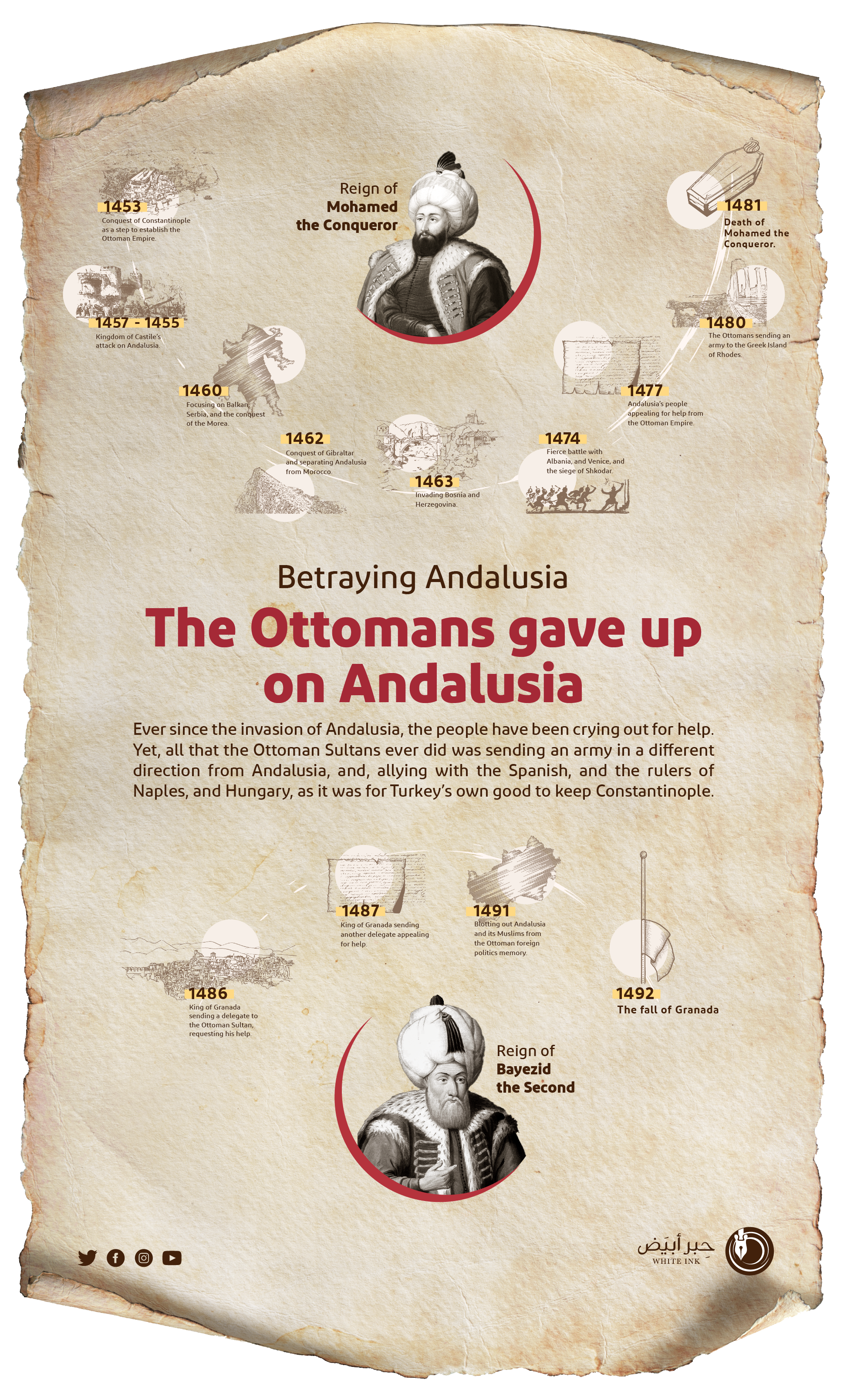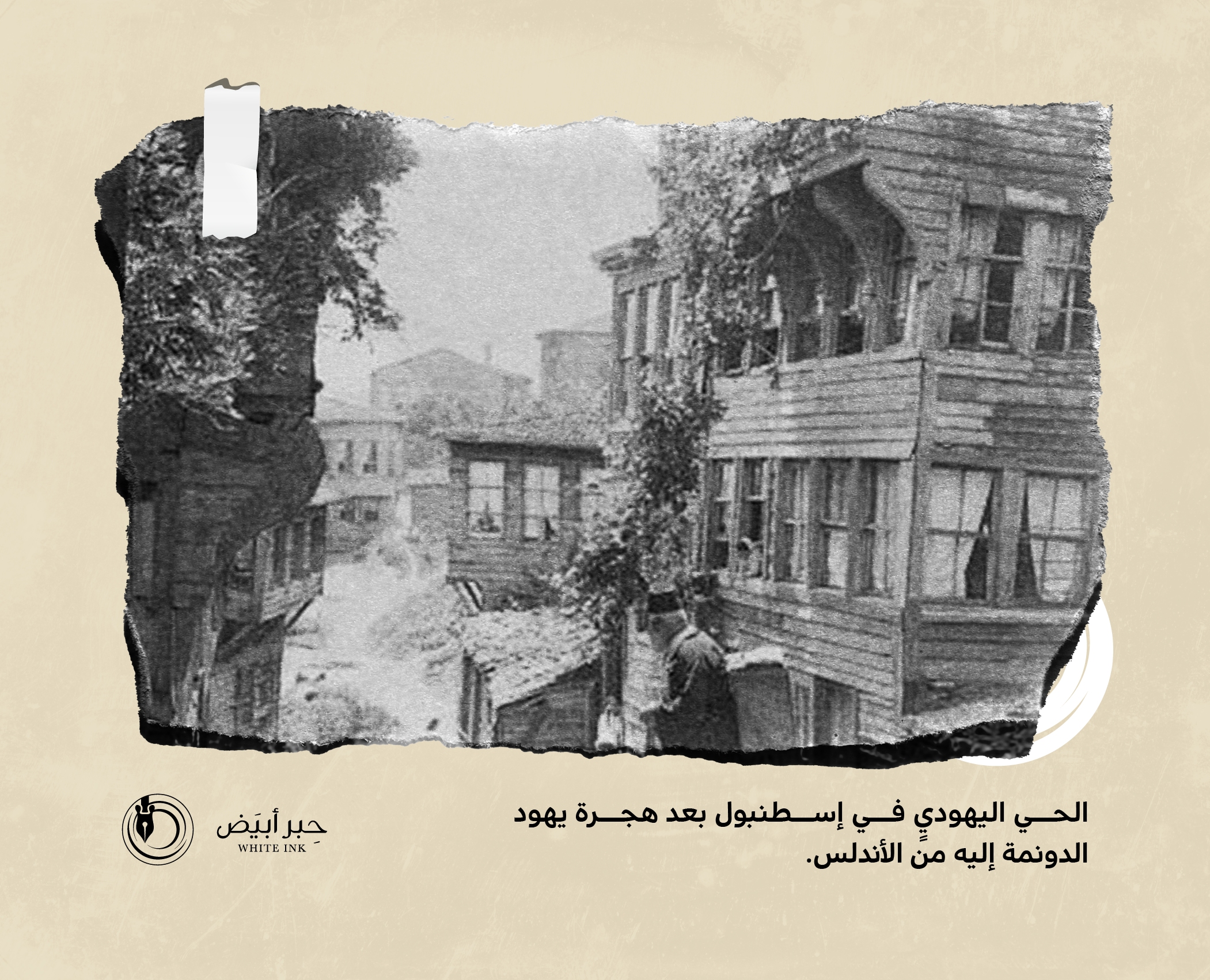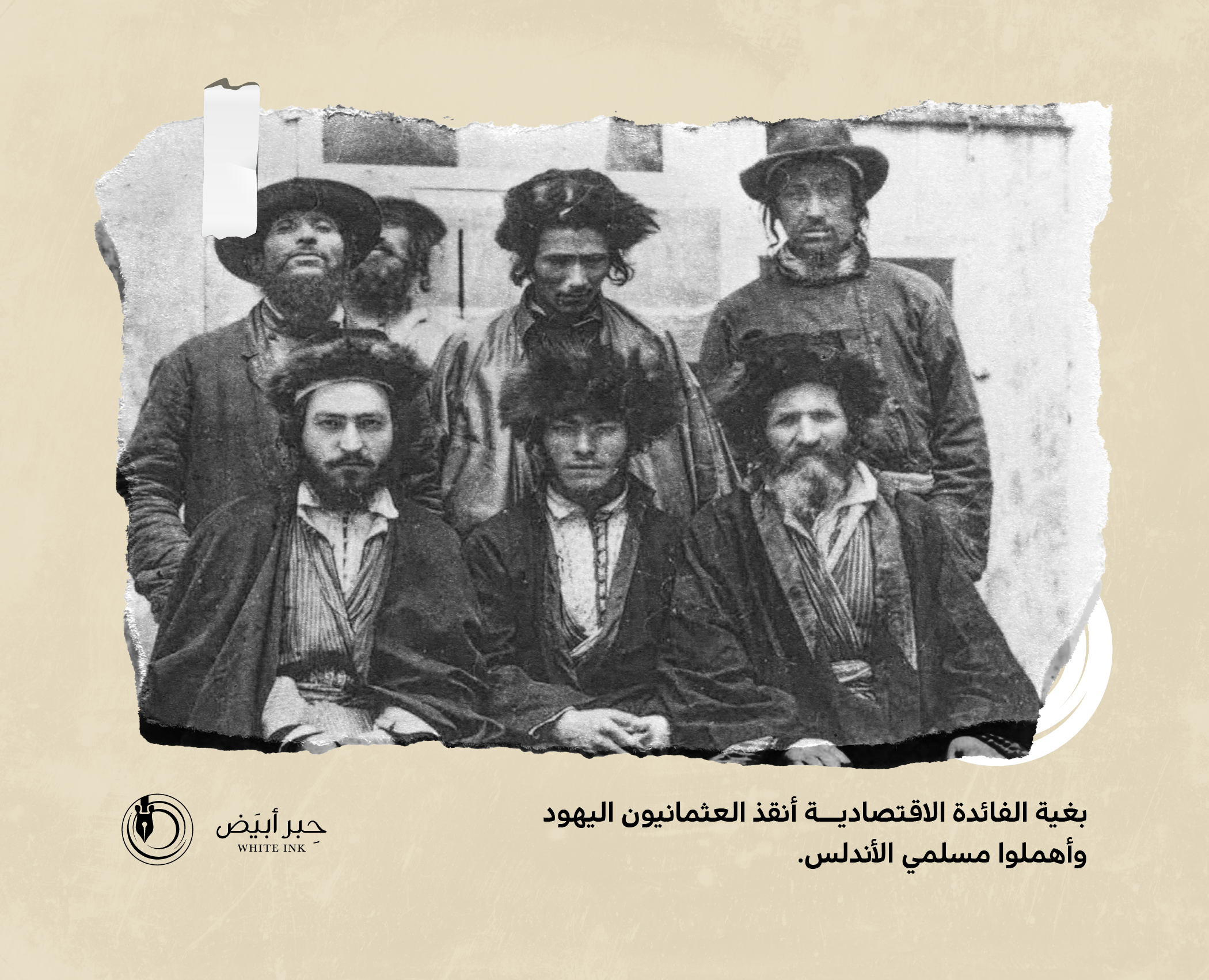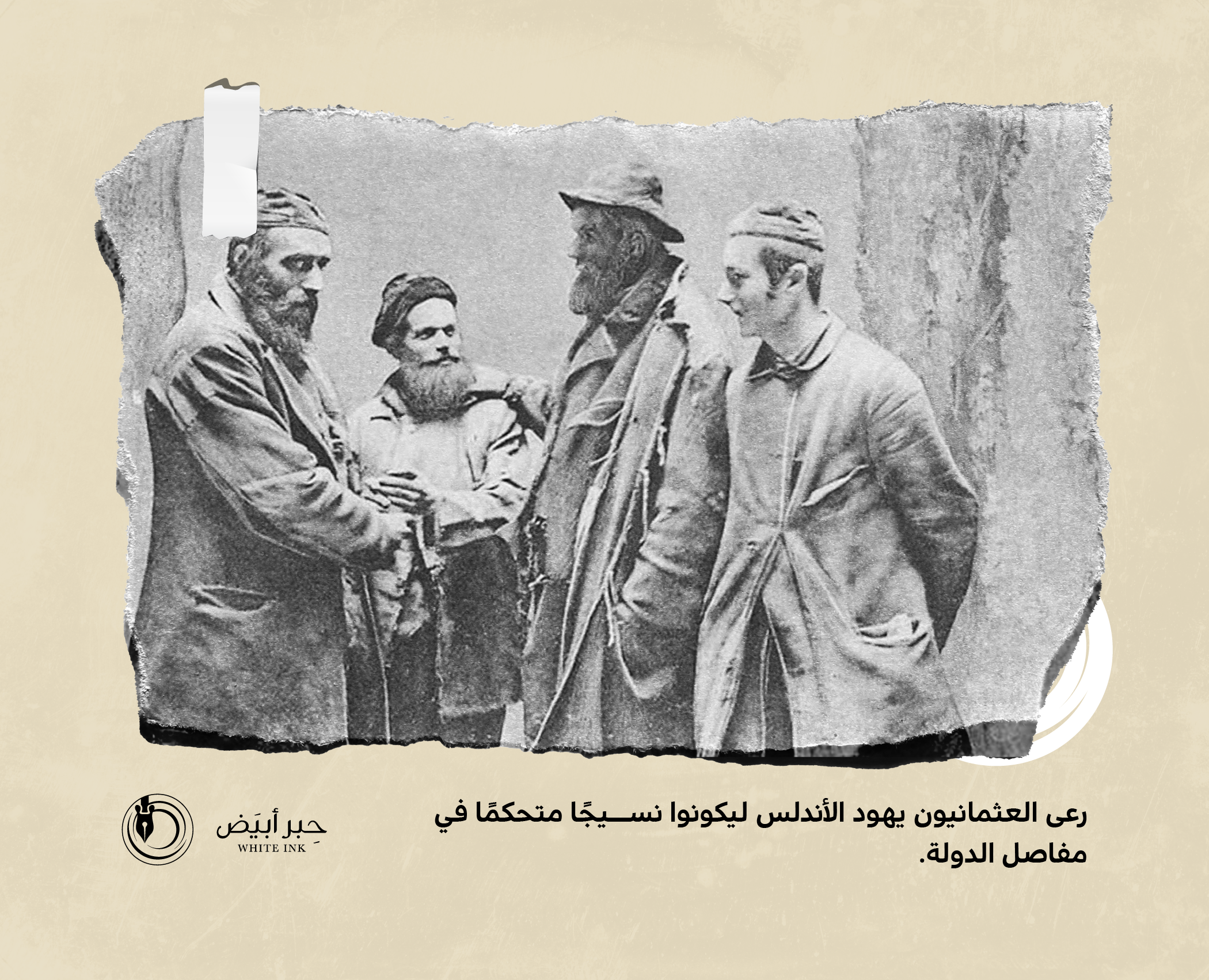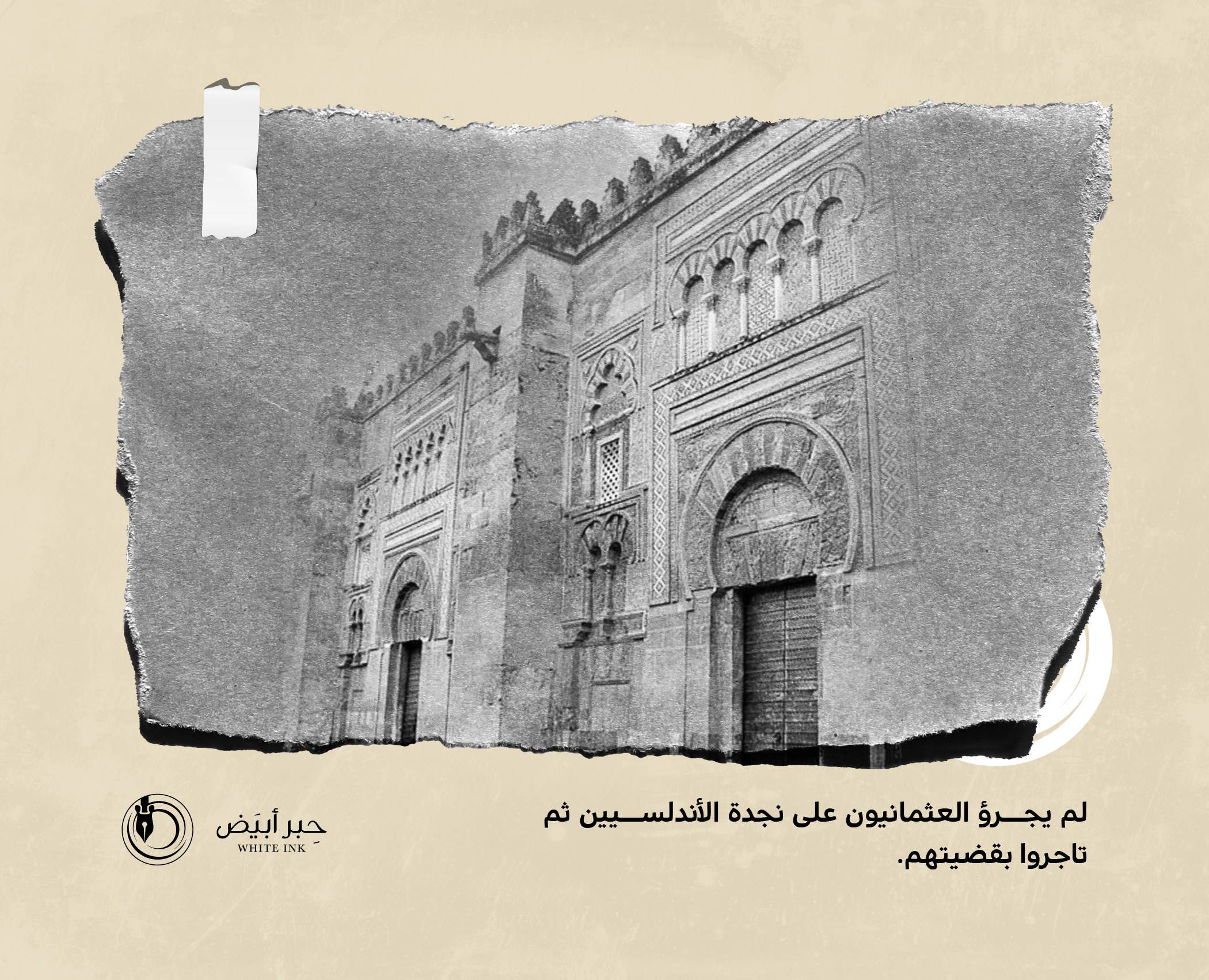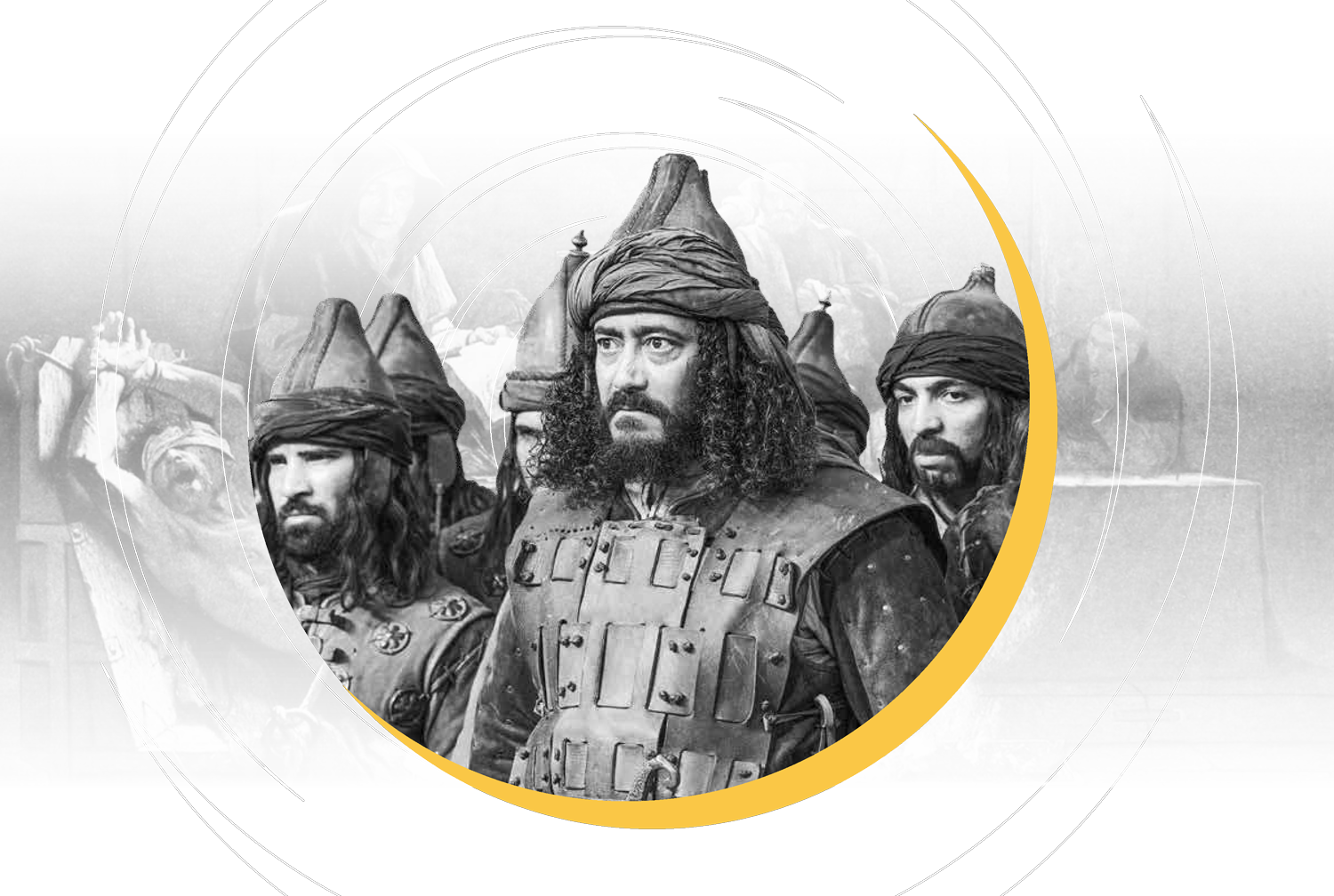
Betraying Muslims is not enough
Ottomans disrupted the
Mamluk’s support of Andalusia
Andalusia fell to the hands of the Spanish, and the last falling city was Granada. The Muslims in Andalusia yelled many missions for help, coming from Andalusia, which became the deadliest for Muslims. The falling into the abyss of inspection became a real fact, however, many of them did not respond to such yelling.
Many claim that the Ottoman Empire was an Islamic Jihad state, working for raising the flag of Allah and protecting Muslims. Many thought that Ottoman Empire is a state of conquests. But it was working to expand its empire on the people’s bodies and skulls, demonstrating tyranny and domination.
Ottomans preferred their benefit in the European Ocean over the response to the missions of the Andalusians.

The Ottomans were busy in their war against the Mamluk, and made a deal with the French against the Spanish in order to control Algeria, for reasons related to the Turkish Sultanate. For that reasons, they sent only Cub to some countries.
The plight of Al Andalus’ Muslims is a result of internal and external conspiracies. Some sources suggested that the mulūk al- awā if,”kings of the territorial divisions” or “party kings” are reasons for such loss and Muslims’ status. However, this does not exonerate the state as it is claimed to be the protector of Muslims’ homes.
The painful cries yelling for help and assistance increased, they became in dire straits, especially after two rebellions, which are Rebellion of Albayzín and Rebellion of the Alpujarras. This resulted in the displacement of large numbers of Moriscos to outside of Andalusia. Much more serious is starting to Christianize people who were forced to stay in the country under the law issued in 1502 AD. This hard Suffering extended from 1499 to 1501AD.
In this time, there were many urgent missions appeared in the Islamic countries as Mamluk State and the state of the Ottoman State of Granada sultans. They did not ignore the Recourse to the Islamic Maghreb by virtue of the convergence and the rapid periods. Despite the overlapping of events, this was the first direction.
Turn Andalusians went towards the Islamic Maghreb as it is the closest country to them. It is also a base of Islamic conquests at that time. But political circumstances prevented achieving that as a result of the large number of internal conflicts and dissension. Thus, the status is almost Common. As an Andalusian historian anonymous says: “We sent asking our Muslim brothers of Morocco’s people for help, but nobody answers. There is nothing wrong with supporting and helping us as our enemy built and lived. This enemy get stronger and we get weaker, and it had support from his country, and nobody supported us …. ” At that time, Crying out did not find echoes because of the complicated events happening in Morocco. This cannot be considered as ignorance or default as the events are common despite the different source.
The Andalusian distress messages were repeatedly forwarded to the Muslim rulers in the form of missions and delegations, asking for prompt help. Consequently, the Mamluk Sultan Jaqmaq in Egypt sought to address the Ottoman Sultan Murad. However, Murad apologized for providing assistance because of the distance. He said he had forces are on land and not on sea. Despite the strength of the Ottoman Empire at the time, but their sultans’ preoccupation in achieving their interests was a Handicap.
The Ottomans did not care about supporting Andalusia Muslims and save them from the clutches of the Crusaders. The author of “Naf al- īb min ghu n Andalusia al-ra īb wa-dhikr waziriha Lisān al-Dīn ibn al-Kha īb” stated that no support came from land nor from overseas as he stated: “… They despaired to find any support or help from land and sea … the enemy was able to capture the prisoners, and every place had been under the Christians’ domination”.
Ottomans wanted to make use of the situation to the rescue of Andalusia, to have Muslims’ appreciation. In 1477 AD, the people of Granada sent a mission to the Ottoman Empire before eleven years of the final fall in the reign of Sultan Muhammed II, known as Al Fateh. This mission pleaded the Sultan to intervene to save them, but they found him preoccupied with holding alliances with the Pope SIXT IV, Venice, the rulers of Naples, Hungary, Transylvania and the Knights of St. John in Rhodes Island. The Worse is that Al-Fateh held alliances with a number of Spanish leaders, even though he knew their deep animosity, but The Empire’s interest requires to maintain his domain over Constantinople after conquering it.
"Al-Fateh" went to Rome ignoring the cries of the Muslims of Andalusia.

The Andalusians did not despair of repeatedly asking Ottomans’ help. During Sultan Bayezid II’s reign, before five years of the fall of Granada, a pitiful mission was sent describing the suffering that resulted in the fall of Islam and everyone who tries to stick to it. But the state having fleet and army in land and on sea, has the same successive miserable reactions. Bayezid acted like his father as he sent only Messages to the Pope to intervene and contact with Castile kings.
What a Miserable role for a Sultan having power and authority. As for the heroic adventures of the Ottoman Sultan which was mentioned and published in Haji Khalifa’s books, including his book entitled: “ Taqweem Al-Tawareekh-History Calender”, It says that “The Sultan assigned Kamal Rice to lead a fleet to save Andalusia Muslims and he conducted painful attacks towards the Spanish shores in 1490 AD.” This speech has been refuted by the Turkish historian, Zhiya Pasha, based on the argument and factual reasoning. He documented these events and said that the Ottoman fleet did not conduct such attacks for two reasons: During this historical period, The Portuguese fleet was a powerful fleet and it camped in the vicinity of Gibraltar, and all the southern sides. In addition, the fleet should pass by bases along the Egyptian and Tunisian coasts, and those coasts were in severe hostility with the Turks.
The Andalusian missions Failed at the Ottoman court, so they went towards Mamluks of Egypt, Sultan Qansuh Al-Ghuri. They explained to him their circumstances and how they were forced to abandon the religion, so, Al-Ghuri did not hesitate to send a delegation to the rulers kings. Using the same previous bargains, he bargained them to force Egyptian Christians be Muslims while they were coerced. The two kings, Ferdinand and Isabella, responded differently from their response to the Ottomans’ bargains. They confirmed to Al-Ghuri their respect to the agreements concluded between them and the Muslims of Andalusia. Moreover, a delegation was sent to Egypt Headed by the President of the Granada Cathedral where they told him that Moriscos are in good condition, and well treated, and that they have the same rights and duties of the Spanish. That action was not conducted by sultans of Al-Othman. Comparing to Mamluk, they did not consider or care.
During the Ottoman silence, Qansuh Al-Ghuri adopted the Andalusian matter. Then he was preoccupied with his conflicts with Ottomans. During this Period, Salim I directed first strikes near the borders of Al Mamlik, It was better more important that the Ottoman army headed towards his Andalusia. However, the Ottoman policy in Europe was interested with its alliances with some countries. Therefore, their European winnings were more important than saving Andalusia. The worst thing is that they disrupted Mamluks by abolishing their state.

The poet Abu-Al Beqaa was at the lead whose verses never made a move.
Bayezid II met the delegation
of Andalusians with a cold heart
Although the new Ottomans revived the cause of Andalusia, at the end it was nothing but a story of forged heroic tales and a re-falsification of the history of the Ottoman Sultans who put their Turkish interests before any other interest.
The falsification carried out by the new Ottomans is nothing but a political exploitation directed at common Muslims who do not know the true history of the Ottomans in failing the Muslims of Andalusia and abandoning them to meet their fate, as the fall of Andalusia coincided with the assumption of Sultan Bayezid to the command of the Ottoman Empire. With Spain imposing the worst forms of torture against the Muslims of Andalusia and what the Inquisition did there; The people of Andalusia had no choice but to seek the help of the Ottoman Empire and other leaders of the Islamic world, so they began sending delegations and ambassadors to Sultan Bayezid II.
It is a historical coincidence; The fall of Andalusia coincided with the fall of the Abbasid Islamic Caliphate in Cairo by the hands of the Sultans of the Banu Uthman, and the Umayyad Caliphate of Andalusia by the hands of the Spanish Crusaders.
The same period in which Bayezid II and his son Salim I ruled the Ottoman Sultanate between (1481 AD1520- AD), and instead of rescuing Andalusia, Salim’s armies tended to pound the Arab Islamic countries from the Levant to Egypt and then to Al-Haramayn while the Andalusian strongholds were falling one after another during the period Between (1490 AD – 1526 AD).
The activity of Bayezid II and his son Salim I after him was limited to the southern front, as the dispute with the Mamluks escalated day after day, as the Mamluk forces were able to defeat many of the Ottoman armies. Bayezid’s policy of appeasement with the Safavids in Iran led to the outbreak of many anti-Ottoman movements, and allowed more Safavid influence in Anatolia, at a time when the Andalusians were tasting torment by the hands of Christian extremists in Granada, and the Arab Muslims were tasting another kind of torment from the Ottomans who occupied Cairo and killed ten thousands of its civilian population.
Nevertheless, the new Turkish machine continues to spread lies and fabricate fictitious heroics about Bayezid II and his son Salim I, who abandoned Andalusia and left it to its painful fate.
The ideologues overridden the Ottomans’ stance on the cries of Andalusians during the reign of Bayezid II and his son because it was shameful.

The researcher, “Abd al-Salam Kamal,” relays the details of the hasty arrival of an Andalusian delegation to Istanbul, the capital of the Ottoman Empire, that was led by Sultan Bayezid II Ibn Muhammad al-Fatih. The head of the delegation delivered an influential distress message – preserved by history – from the Muslims of Andalusia to the Sultan. He mentioned in its intro:
“Your highness; May Allah convey your happiness, supreme your word, pave your lands, dearest your supporters, and humiliate your enemies. Honorable Lord and governor of our religion and our world, Sultan Al-Malik Al-Nasir, savior of the world and religion, and the Sultan of Islam and Muslims, who suppresses the enemies of Allah- the unbelievers-, the cave of Islam, and the supporter of the religion of our Prophet Muhammad, the one who revives justice, and the fairer of the oppressed, the king of Arabs and non-Arabs, the Turks and Daylam, the shadow of Allah in his land. The One who applies His Sunnah and His imposition, King of the two lands, Sultan of the two seas, Protector of Dhamar, and the oppressor of the infidels, our Lord and our governor, our shelter and our savior. the one who is followed by many supporters, coupled with victory, the one whose history and impact are preserved, known for glory and pride, the one who acquires the good deeds and shall be doubled in the hereafter and the pleasant praise, and victory in this life. The one whose desire is to fight for the sake of Allah “Jihad” devoid from the enemies of the religion of its power, what comforts hearts and weapons, spending souls for the sake of righteousness; choosing the path of winners of Allah’s satisfaction and obedience on the resurrection day of all people”.
In spite of this Andalusian delegation, and the sophisticated letter that clarifies the situation of the Muslims of Andalusia; However, nothing happened by Bayezid, nor his son Salim after him.
In poetic verses that summarize the call to action that did not take place and the Ottoman abandonment of the Muslims of Andalusia, the poet Abi Al-Beqaa Salih bin Sharif describes the tragedy of Muslims in Andalusia and the treachery of their enemies, he says:
The Scandal of the Ottomans in Andalusia was resounding.




In spite of this call to recourse; The Ottomans preferred to stay away from Andalusia and its tragedy, preoccupied with their war against the Mamluk state in the Levant and Egypt due to conflicts that began during the reign of Sultan Mehmet Al-Fatih (father of Sultan Bayezid II).
Abu Al-Beqaa Al-Andalusi recorded painful incidents in his poetry that was recited before Sultan Bayezid in which he mentioned the names of cities whose inhabitants were tortured or burned or slaughtered with the sword, saying:


The Religious Perspective Has Formed Its History with a Sanctity
Ottoman “Pragmatism”
Drained “Andalusia”
History is deeply intertwined with myths when the history is religiously employed for political purposes. We find this clear in the situation of the Ottoman State when its history is addressed only from a religious perspective. When the focus is on that it is the last Islamic caliphate. As a result of that, its history seems as a pure white and sacred history, even though its real history is in fact a gray history. Hence, the history of the Ottoman State is found in the writings of political Islam as a history of an epitome of whiteness that is encapsulated in tales of myths, and as a near – sacred history; further, perhaps far from gray historical reality.
One of the controversial points in this regard is the question of the view of the Ottoman Sultans on the issue of the retrieval of Andalusia by the Spanish. In addition to the plight of the people of Andalusia; where some people paid a great tribute to the question of the messages of the Andalusia’s people that were sent to the Ottoman Sultans for saving them from the abuse of the Spanish. They saw this as a proof of the religious status of the Ottoman State. But they do not draw the same attention to the messages and the call by the people of Andalusia upon most Muslim rulers, whether in the Maghreb, i. e. West, or the Levant, i. e. East. As this means that the demand for help was not only limited to the Ottomans, but to the various countries of Islam too; However, we notice the great interest in highlighting the messages of the people of Andalusia to the Othman family, as if they are the only that were the protectors of Islam.
So we find among the supporters of the political Islam a clear ideological attempt to highlight the status of the Othman family in helping Islam and Muslims in Andalusia in regard to the persecution of the Spanish. Indeed, this is deeply exaggerated, devoid of a purpose and an objective and it is far from the historical reality.
In addition, if we go through some of the most important academic studies on the history of the Ottoman State, we will find something that contradicts the legendary history of the Ottoman relationship with Andalusia. One of the most important studies on the Ottoman history in general, and on the Ottoman foreign policy in particular is “The Ottoman State and the Surrounding World”, by the German Professor of Eastern Origin, Thuria Faruqi. As well as the well-known Turkish historian Khalil Inaljik’s book, “The History of the Ottoman State from Emergence to Decline”.

Thuria Faruqi: The Holy War was interrupted by the relationship among the Ottomans, the French and the Venetians for political and economic interest.

“As it can be seen from the Ottoman perspective, the expansion of Islamic territory through the War against the Infidels played a key role in legitimizing the rule of Sultans. While the compatibility between the Ottoman rulers, from one side, and their Venetian counterparts and the Habsburgs family, from the other side, was not rare in the border territories; however, we find the confrontations were more known in both oral and written cultural materials … the Venetian tendency to introduce the commercial considerations with the Ottomans over the Holy War had received a considerable criticism. The King of France, Francois I, was the only one of Europe’s leading monarchs who was willing to withstand widespread anti-propaganda by entering into an alliance with the Ottomans” according to Faruqi’s description.
The study of Thuria Faruqi here is of great importance because it contradicts the traditional sayings that are common in the Ottoman literature about the Dar al-Harb, i. e. region of war, “region of infidels”. And that the foreign policy of the Ottoman Sultans in Europe was an “Islamic” policy; as she makes clear that it was a purely pragmatic policy. On the other hand, we find the same thing that is: the enemies of the Ottoman State; the Venetians and the Habsburgs family abandoned the principle of the “Holy Crusade War” in order to maintain the commercial transactions with the Ottoman State. Instead, the King of France has a military alliance with the Ottomans against European Christian countries. As this is the politics, economics and pragmatism at its highest stage.
By reading the events of the war and the policy of the Ottoman sultans through the writings of Faruqi and Khalil Inaljik, we can hardly find a mention of Andalusia. As the Ottoman policy was not motivated by the religious emotions, but primarily by the economic interests.

Khalil Inaljik: Until 1491, neither Andalusia nor its Muslims were mentioned in the events of Ottoman foreign policy.

After the death of Mohamed Al-Fateh, a violent rebellion broke out among Al-Ankshariyah and a violent power dispute broke out between Mohamed Al-Fateh’s two sons, “Jim and Bayezid”. Bayezid soon came to power and, in his early reign, was advised to abandon his father’s policy of the many wars that had strained the Treasury of the State. Where this was exacerbated by his brother Prince Jim fled to Egypt and requested the assistance of the Mamelukes against his brother Bayezid, which led to several military campaigns between Bayezid and the Mamelukes until 1491 AD, which in fact weakened the both parties.
Thus, at least until 1491 AD, neither Andalusia nor the Muslims of Andalusia were mentioned in the events of Ottoman foreign policy, which was engaging in the Balkans and the Anatolian conflicts, as well as the beginnings of the Ottoman-Mameluke confrontation.


